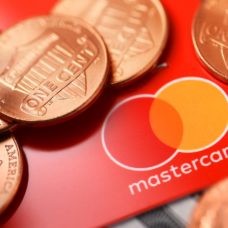Humaniq is one of the many disruptive fintech startups that harnesses Blockchain technology to help boost economic inclusion in the world.
The World Bank aims to reach Universal Financial Access by 2020, and one of the tools it created for that goal is the Global Findex database, funded by the Bill & Melinda Gates Foundation.
As of 2014, there were still two billion unbanked adults in the world with no bank account. Bank accounts represent the main access point to the traditional financial system and, without them, social development is close to impossible.
Since the Global Findex was launched in 2011, per the 2017 Global Financial Inclusion report, 1.2 billion adults have obtained a bank account, including over 500 million since 2014.
Despite this progress, there are still hundreds of millions of unbanked and underbanked people around the world, especially in developing regions.
Read More: Quantum Resistant Ledger Could Make Current Blockchain Models Obsolete
Economic Inclusion: Banking on Blockchain
There are more opportunities to take advantage of from economic inclusion than just improving the lives of individuals.
The more people have access to loan, savings, insurance and other customer-centric financial services, the more they can participate in the financial system and contribute to economic growth as a whole.
We can safely bet on fintech to get those who have no access to any source of funding out of the financial exclusion and to integrate them into banking 4.0.
The rise of new technologies and new digital payment systems helps reduce poverty by establishing a disruptive financial system that’s easier to enter, more flexible, and offers better security.
While the range of its application is immense, Blockchain technology is, and will continue to be in the near future, a fledgling industry.
Although still relatively young, aided by mobile money technology, blockchain is facilitating the financial inclusion of millions of unbanked people.
In this regard, a London-based fintech startup called Humaniq bears economic inclusion as a slogan.
Humaniq’s Financial Inclusion Solutions
Launched in December 2016, Humaniq‘s mission is to serve people who don’t have a bank account and who are excluded from the traditional financial system.
“We believe Humaniq can help reverse these trends and help bring people out of poverty by giving them banking tools that can provide liquidity for entrepreneurial ventures via loans, investment, online work and cryptofinancing as well as create new opportunities in the digital economy, locally, nationally and internationally. Humaniq can also help mitigate the refugee crises occurring in many countries in the West due to economic disparity and lack of opportunities in emerging economies,” says President and co-Founder of Humaniq, Alex Fork.
Humaniq describes itself as a “self-deploying financial infrastructure” that offers “true hope for the unbanked, blue ocean for business.”
In a whitepaper, Humaniq notes that, in addition to financial exclusion, many people in underserved regions in the world also lack ID documentation like a passport, which complicates their integration into some fintech products and services.
To address this issue, Humaniq opted for biometric identification that, besides being easier to implement, is more secure against identity fraud.
To bio ID users, Humaniq uses AI face-recognition software.
That’s the first major difference that sets Humaniq apart from other Blockchain platforms: there’s no anonymity.
With its bioID, Humaniq hopes it will appease “transparency” advocates and exclude “financial terrorists” who trade “drugs and all the other deadly sins Bitcoin is accused of.”
How Humaniq Works
For Humaniq users, all they need to have is a smartphone with a camera — no bank account or documentation of any kind is needed.
After downloading the app, the bio-identification process takes around 20 seconds, and they join the Humaniq network.
Now available in 46 countries, the Humaniq app has reached over 500,000 downloads.
The Humaniq app, built around a crypto token called HMQ, includes a digital wallet and a secure instant messaging service.
Upon registration and passing bio-identification, each new user receives $20 worth of HMQ in a bonus.
Users can transfer HMQ with zero fees, and they can use it to buy goods, or exchange it with peers in their network that they can themselves build by inviting acquaintances, hence the “self-deploying” characteristic of Humaniq.
Humaniq users also have the opportunity to earn some extra HMQ tokens by executing tasks for third-party employers, like businesses and services that adopt Humaniq. In the app, the “Offers” tab shows a list of tasks available at the user’s location.
Humaniq is just one of many foundations which are beginning to spread into the blockchain-based world of bankless finance.
In the future, it’s likely that it won’t be the only business in this sector. Providing financial independence and freedom to more undeveloped nations of the world is the first stepping stone to creating a more advanced and diverse economy in those regions.
Now, it seems that blockchain can break through the banking wall that has been impeding these nations for decades.



















Comments (0)
Most Recent